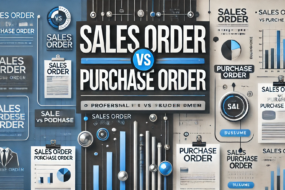
In the fast-paced world of modern business, where competition is fierce and customer expectations are constantly evolving, the role of a Sales Enablement Manager has emerged as a linchpin for success. Sales teams are the lifeblood of any organization, and empowering them with the right tools, knowledge, and strategies can make all the difference in achieving revenue goals.
This comprehensive blog will thoroughly explore the following crucial facets: comprehending “What is a Sales Enablement Manager,” acquiring essential skills for success in sales enablement, delving into the core responsibilities of a Sales Enablement Manager, and concluding with a summary.
So, let’s get started;
What Is Sales Enablement Manager?

A Sales Enablement Manager plays a critical role in an organization by spearheading the alignment of sales strategies, equipping sales teams with essential resources, and ensuring they possess the expertise and abilities needed to engage effectively with potential customers. Essentially, they are the driving force behind boosting the productivity and performance of the sales force.
Critical Skills For A Sales Enablement Manager
A Sales Enablement Manager requires a diverse skill set to fulfill their role and drive sales success effectively.
Here are seven essential skills for a Sales Enablement Manager:
- Sales Expertise: A deep understanding of sales processes, methodologies, and the challenges sales teams face is crucial. This expertise helps in tailoring enablement programs to address specific needs.
- Communication Skills: Strong communication skills are essential for conveying information, providing feedback, and facilitating training sessions effectively. The ability to articulate complex ideas is invaluable.
- Content Creation: Sales Enablement Managers should excel in creating and curating content, including sales collateral, training materials, and resources. Proficiency in various content formats, such as presentations and videos, is beneficial.
- Data Analysis: Gathering, analyzing, and interpreting data is vital for measuring the impact of enablement initiatives and making data-driven decisions to improve sales processes.
- Technology Proficiency: Familiarity with sales enablement software, Customer Relationship Management (CRM) systems, and other relevant tools is essential for optimizing sales operations and tracking performance.
- Coaching and Mentoring: Providing effective coaching and mentorship to sales teams is essential for ongoing skill development and performance improvement.
- Project Management: Sales Enablement Managers often oversee multiple projects simultaneously, from content creation to training programs. So, Strong project management skills ensure that initiatives are executed efficiently and on time.
Now that you’re acquainted with the definition of a Sales Enablement Manager and the essential skills they should possess let’s delve into their core responsibilities.
The Responsibilities Of A Sales Enablement Manager
A Sales Enablement Manager plays a pivotal role in shaping the success of a sales organization. Their responsibilities span various critical areas, including:
Developing And Aligning Sales Strategies
- Identifying Target Markets and Customer Personas:
One of the foundational responsibilities of a Sales Enablement Manager is to identify and define target markets and customer personas. This involves in-depth research and analysis to pinpoint potential customers’ specific demographics, needs, pain points, and preferences. By understanding these aspects, Sales Enablement Managers enable sales teams to tailor their approach, messaging, and solutions to resonate with the intended audience. - Key Actions:
- Conduct market research to identify target markets.
- Create detailed customer personas that encompass vital attributes and challenges.
- Share these insights with sales teams to guide their prospecting efforts.
- Defining Sales Processes and Methodologies:
They are responsible for establishing and refining sales processes and methodologies. They work closely with sales leadership to design standardized workflows that guide the entire sales cycle, from lead generation to closing deals. Defining these processes ensures that sales teams operate cohesively and efficiently, reducing the likelihood of missed opportunities or inconsistent approaches. - Key Actions:
- Collaborate with sales leaders to map out the sales process stages.
- Identify key milestones and decision points within each stage.
- Develop standardized playbooks and guidelines for sales representatives to follow.
Providing Training And Onboarding For Sales Teams
- Sales Training Programs and Content Creation:
Sales Enablement Managers are tasked with developing comprehensive sales training programs and creating relevant training content. That involves producing materials covering various topics, including product knowledge, sales techniques, objection handling, and competitive analysis. These training programs and resources are essential for ensuring that sales teams are well-equipped to engage effectively with prospects and customers. - Key Actions:
- Design and deliver structured training programs.
- Create training materials like presentations, videos, product guides, and sales scripts.
- Maintain a central repository for easy access to training content.
- Continuous Skill Development and Coaching:
Sales Enablement is not a one-time event; it’s an ongoing process. Sales Enablement Managers provide continuous skill development opportunities for sales teams. They offer coaching, feedback, and personalized guidance to help sales professionals continually refine their skills and adapt to changing market dynamics. - Key Actions:
- Conduct regular coaching sessions, either one-on-one or in groups.
- Provide feedback on sales calls, presentations, and negotiations.
- Identify areas for improvement and tailor development plans accordingly.
Content And Collateral Creation
- Developing Sales Assets and Resources:
Sales Enablement Managers create and maintain a repository of sales assets and resources. These include product brochures, case studies, sales scripts, objection-handling guides, and competitive battle cards. These resources empower sales teams with the materials to effectively communicate value propositions and address customer concerns. - Key Actions:
- Collaborate with marketing and product teams to develop sales collateral.
- Ensure that collateral is tailored to different stages of the sales funnel.
- Organize and categorize resources for easy access and retrieval.
- Ensuring the Availability of Up-to-Date Materials:
Keeping sales collateral up-to-date is vital to maintaining credibility and relevance in customers’ eyes. Sales Enablement Managers must regularly review and refresh sales materials to reflect product updates, market changes, and evolving customer needs. That ensures that sales teams always have access to accurate and current information. - Key Actions:
- Establish a review schedule to update materials as needed.
- Communicate changes to the sales team promptly.
- Archive outdated materials to prevent their accidental use.
Given their broad responsibilities, you might wonder how much a Sales Enablement Manager earns. Don’t worry; we have the answer to that question.
What Is The Typical Salary Of A Sales Enablement Manager?
Various sources provide slightly different estimates when considering the typical salary of a Sales Enablement Manager in the United States. According to data from Glassdoor, the average base salary is reported to be approximately $92,675. On the other hand, ZipRecruiter suggests a similar overall pay, with an average salary of around $106,993 as of July 2021. Furthermore, the top 25th percentile of Sales Enablement Managers earns over $126,000.
It’s important to note that these figures can vary significantly based on location, industry, and company size. For instance, when examining salaries specifically within the “Computer Software & Hardware” category, Glassdoor indicates that the average base pay increases to nearly $107,338, with the highest earners potentially making over $176,000.
Regarding the prevalence of sales enablement roles, as of 2018, the job market for Sales Enablement Managers was robust. According to CSO Insights, more than 60% of companies had established dedicated sales enablement roles or programs. This number increased to over 70% among companies with annual revenues exceeding $50 million.
FAQs
Q1: How Does A Sales Enablement Manager Contribute To Achieving Revenue Goals?
A. A Sales Enablement Manager is pivotal in driving revenue growth by empowering the sales team with the necessary tools and knowledge. By providing targeted training programs, the manager enhances the team’s skill set, enabling them to engage more effectively with clients and close deals efficiently. This heightened effectiveness directly translates into increased sales, thereby contributing to the overall achievement of revenue goals.
Additionally, the Sales Enablement Manager ensures alignment between sales and marketing efforts, facilitating a cohesive approach that maximizes the impact of promotional activities and customer interactions. In essence, the manager becomes a catalyst for improved sales performance, streamlining processes and optimizing the Holistic sales strategy to meet and surpass revenue goals.
Q2: How Can Organizations Benefit From Having A Sales Enablement Manager?
A. Organizations can derive significant advantages from employing a Sales Enablement Manager, as this role acts as a linchpin for enhancing overall sales effectiveness and driving business success. Firstly, a Sales Enablement Manager ensures that sales teams have the latest tools, resources, and knowledge for navigating the competitive market landscape. This leads to an immediate improvement in the sales force’s performance, resulting in increased customer engagement and higher conversion rates.
Conclusion
Now that you know the capabilities of a Sales Enablement Manager, consider hiring one today and experience firsthand the positive impact they can have on your business.
If you still have any questions regarding the blog, please leave them in the comment section. We will be happy to answer you.
Thanks for reading 🙂








No Comments